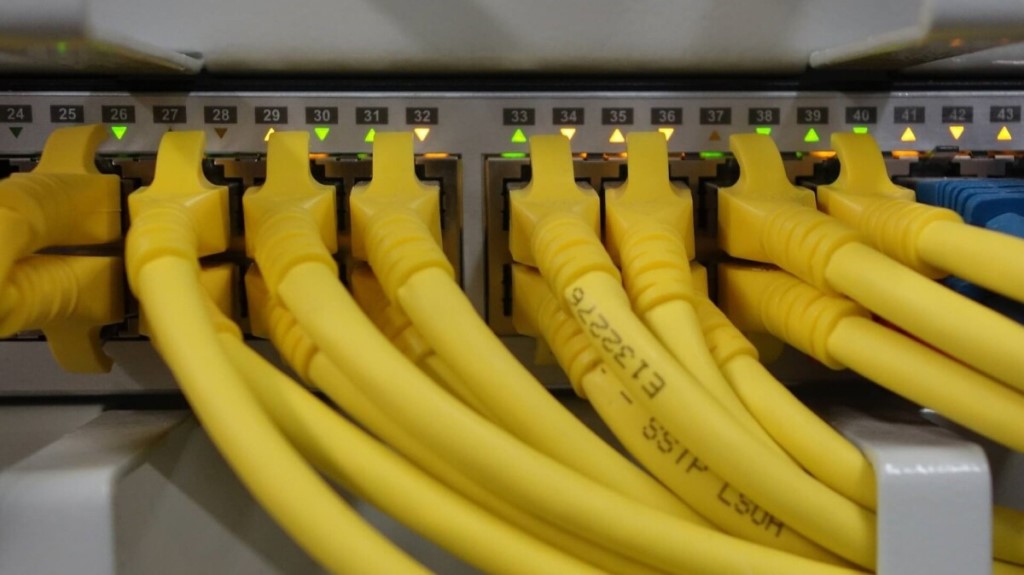In the world of business communications, traditional phone systems have long been a source of frustration. Companies large and small have grappled with the high costs of maintaining these systems, not to mention the limited features that often hinder rather than help business operations.
In this scenario, Session Initiation Protocol (SIP) emerges as a beacon of hope for businesses seeking to break free from the constraints of outdated telephony. It promises a world where communication is not only cheaper but also more robust and feature-rich, capable of meeting the diverse needs of today’s dynamic business environments. Click on each section to learn more.
- What Is Session Initiation Protocol (SIP)? (Technical Breakdown)
- Understanding Session Initiation Protocol in Layman’s Terms
- SIP for Businesses: Harnessing Efficiency and Innovation
- SIP Tips and Recommendations: Ensuring a Smooth Experience
- Understanding Session Initiation Protocol (SIP) and Related Technologies
- Embracing SIP Trunking: A Strategic Move for Businesses
Whether you’re a small startup or a large enterprise, understanding SIP could be the key to unlocking a new era of communication efficiency and innovation. Contact us if you would like to learn more or would like to make the switch to SIP today.
Key Takeaways: What You Need to Know About SIP
- SIP is the backbone of modern communication: It manages the setup, management, and termination of voice, video, and messaging sessions over the internet.
- Cost savings are a major benefit: SIP trunking eliminates the need for traditional phone lines, reduces long-distance charges, and operates on a pay-per-use model.
- Scalability and flexibility come standard: Adding or removing lines is simple, with no physical limitations, making SIP a future-proof solution for growing businesses.
- Advanced features improve productivity: Tools like voicemail-to-email, video conferencing, and CRM integration streamline workflows and enhance collaboration.
- A reliable internet connection is essential: Strong bandwidth, QoS, and proper SIP-compatible equipment ensure clear, uninterrupted calls.
- Security cannot be overlooked: Encryption, firewalls, and strong account protections are vital to keeping SIP systems secure.
- SIP works hand-in-hand with VoIP and PBX systems: It integrates seamlessly with existing infrastructure, allowing businesses to maximize current investments.
- SIP trunking is a strategic upgrade: Beyond cost savings, it boosts reliability, supports disaster recovery, and ensures communication never becomes a growth bottleneck.
Session Initiation Protocol
1. What Is Session Initiation Protocol (SIP)? (Technical Breakdown)

SIP can work over TCP, UDP, or other network protocols.
Session Initiation Protocol (SIP) is the cornerstone of modern IP-based communications, serving as a signalling protocol that is pivotal for initiating, managing, and terminating communication sessions. These sessions can range from a simple two-way telephone call to collaborative multi-media conferences. At its core, SIP is designed to be independent of the underlying transport layer, meaning it can work over TCP, UDP, or other network protocols.
SIP operates on a client-server model, where SIP clients, also known as User Agents (UAs), send requests to initiate a session. These requests are then processed by SIP servers, which respond accordingly to facilitate the communication. This interaction is fundamental to the flexibility and efficiency of SIP, allowing for a scalable system that can handle a multitude of communication types, including voice, video, and other forms of media.
Key Components of SIP
- User Agent (UA): This is an endpoint in the SIP network and can act as both a client and a server within the same session. It initiates and terminates the communication by sending and receiving requests.
- SIP Server: There are different types of SIP servers, each serving a specific purpose. For instance, a Registrar is a type of SIP server that accepts REGISTER requests from UAs and updates the location database accordingly.
- Registrar: The Registrar is crucial for SIP as it helps in the location of end-users, enabling the routing of SIP requests to the user’s current location.
SIP Messages
SIP utilizes a set of request and response messages to control the communication sessions. Some of the common SIP messages include:
- INVITE: Initiates a call or session.
- ACK: Confirms that the client has received the final response to an INVITE request.
- BYE: Ends a call or session.
- REGISTER: Registers the UA with a SIP server.
These messages are exchanged between UAs and SIP servers to establish, manage, and terminate sessions in a seamless manner.
In summary, SIP is a powerful protocol that has revolutionized the way businesses communicate. By understanding its technical aspects, your business can leverage SIP to enhance your communication infrastructure, leading to improved efficiency and cost savings.
2. Understanding Session Initiation Protocol in Layman’s Terms
Watch the above video to dig deeper into SIP or read on for a simpler explanation.
Imagine your business phone system as a car that needs to reach the vast digital city of the internet. Traditionally, this car would have to travel on a single-lane road, known as the traditional phone line, which is not only congested but also charges a hefty toll for every trip. This is the old way—expensive and limited.
Now, let’s talk about SIP trunking. Think of it as a multi-lane bridge that connects your business directly to the Internet highway. This bridge is wide, allowing for multiple cars (calls) to travel simultaneously, and it’s part of the infrastructure you already pay for with your internet service. So, essentially, you’re using a road that’s already built, avoiding those costly tolls and traffic jams.
The Cost Savings and Scalability of SIP
With SIP trunking, you’re no longer paying for each individual call as if it’s a separate trip on a toll road. Instead, you’re utilizing the internet connection you already have, which can handle countless calls at once, just like a multi-lane bridge that supports numerous vehicles. This translates to significant cost savings, especially when it comes to long-distance and international calls, which traditionally come with a premium price tag.
Moreover, SIP trunking is inherently scalable. If your business grows and you need to add more lines, it’s as simple as adding more lanes to the bridge—no need for new physical lines or waiting for technicians. This flexibility ensures that your communication infrastructure can grow with your business, without the need for expensive and disruptive upgrades.
In essence, SIP trunking is your modern business’s answer to the limitations of traditional phone systems. It’s efficient, cost-effective, and scalable, making it an ideal solution if you are looking to improve your communication systems.
3. SIP for Businesses: Harnessing Efficiency and Innovation

Session Initiation Protocol enables your employees to stay connected no matter where they are.
The adoption of Session Initiation Protocol (SIP) by businesses is not just a trend; it’s a strategic move toward operational excellence. Here are the key advantages that SIP brings to the table for businesses:
Cost Savings
- Pay-per-Use: Unlike fixed lines that incur charges regardless of usage, SIP operates on a pay-per-use model, ensuring you only pay for what you need.
- Reduced Overhead: With no need for physical lines, SIP cuts down on your overhead costs associated with traditional phone systems.
Scalability
- Easily Add/Remove Lines: As your business grows, SIP grows with you. Adding or removing call lines is a straightforward process, allowing for quick adjustments to your communication needs.
- No Physical Limitations: The virtual nature of SIP eliminates the physical constraints of traditional systems, offering unparalleled scalability.
Improved Flexibility
- System Integration: SIP seamlessly integrates with existing systems, including Customer Relationship Management (CRM) and other business tools, enhancing workflow and data accessibility.
- Mobile Functionality: With SIP, employees can stay connected regardless of their location, using mobile devices as extensions of the office phone system.
Advanced Features
- Voicemail-to-Email: SIP enables voicemail messages to be delivered directly to email inboxes, facilitating prompt responses and better message management.
- Video Conferencing: High-quality video conferencing becomes a standard feature, not an expensive add-on, fostering collaboration and face-to-face interaction.
Integration with Existing Infrastructure
SIP’s versatility allows it to integrate smoothly with existing phone systems, such as Private Branch Exchange (PBX) and Voice over IP (VoIP) infrastructure. This integration ensures that businesses can leverage SIP’s benefits without discarding their current investments. Existing PBX systems can be enhanced with SIP trunking to connect to the internet, while VoIP systems naturally complement SIP, creating a robust, unified communications platform.
In essence, SIP transforms the way businesses communicate, offering a smarter, more adaptable, and feature-rich alternative to traditional telephony. By embracing SIP, businesses can not only reduce costs but also gain a competitive edge through improved communication capabilities.
4. SIP Tips and Recommendations: Ensuring a Smooth Experience

Make sure you have a robust internet connection.
When it comes to implementing Session Initiation Protocol (SIP) in your business, there are several factors to consider to ensure a smooth and efficient experience. Here are some tips and recommendations:
The Backbone of SIP: A Reliable Internet Connection
- Quality of Service (QoS): Ensure your internet connection is robust enough to handle SIP calls, which require a stable and high-quality connection to function optimally.
- Bandwidth: Assess your current bandwidth to make sure it can support the additional load of SIP traffic without compromising call quality.
Upfront Costs: Planning Your Budget
- Equipment: Depending on your current setup, you may need to invest in SIP-compatible phones or adaptors for your existing phones.
- Installation: Professional installation can ensure that your SIP system is set up correctly from the start.
- IT Support: Consider the potential need for ongoing IT support to manage and maintain your SIP infrastructure.
Security: Protecting Your Communications
- Strong Passwords: Use complex passwords for your SIP accounts to prevent unauthorized access.
- Encryption: Implement encryption protocols like Transport Layer Security (TLS) to secure your SIP communications against eavesdropping and tampering.
- Firewalls and Session Border Controllers (SBCs): Utilize these tools to further secure your SIP infrastructure and manage the flow of SIP traffic.
The Role of IT Service Providers
- Expertise: IT service providers specializing in SIP can offer valuable expertise, guiding you through the selection, installation, and maintenance processes.
- Support: Look for providers that offer comprehensive support, ensuring that help is available when you need it.
- Custom Solutions: Many providers can tailor SIP solutions to fit your specific business needs, offering scalability and flexibility.
By paying attention to these key areas, you can maximize the benefits of SIP while minimizing potential challenges. A well-planned SIP implementation, backed by reliable internet, thoughtful budgeting, robust security measures, and expert support, can transform your business communications into a streamlined and cost-effective operation.
5. Understanding Session Initiation Protocol (SIP) and Related Technologies
VoIP enables voice communication over the internet.
Voice over Internet Protocol (VoIP) is a revolutionary technology that enables voice communication over the internet. By converting voice into digital signals, VoIP allows users to make calls directly from a computer, a VoIP phone, or other data-driven devices. This technology has transformed the way we communicate, offering flexibility and cost savings over traditional telephone networks.
At the heart of VoIP technology lies the Session Initiation Protocol (SIP), a key protocol used for initiating, maintaining, and terminating real-time sessions that include:
- voice
- video
- messaging applications
SIP is crucial for call signaling and management, allowing users to make, receive, and modify calls with ease. It operates on a request-response model, managing the setup and tear-down of calls, handling the transfer and termination of calls, and providing features such as call forwarding and caller ID.
In addition to SIP, there are several other technologies that play a vital role in the VoIP ecosystem:
- Private Branch Exchange (PBX): This is an internal phone system used within businesses. PBX systems utilize SIP to connect internal phone extensions to the external telephone network, enabling efficient communication within an organization and with the outside world.
- Cable Specifications: The quality of SIP calls can be significantly affected by internet bandwidth and the upload/download speeds provided by one’s internet service. Adequate bandwidth ensures that voice data is transmitted smoothly and without interruption, which is essential for maintaining high-quality voice calls.
Understanding these technologies and their interplay is essential for anyone looking to implement or use VoIP services effectively. As the demand for flexible and cost-effective communication solutions grows, SIP and its related technologies will continue to be pivotal in shaping the future of telecommunications.
6. Embracing SIP Trunking: A Strategic Move for Businesses

Contact Network Telecom today to learn more about switching to SIP.
SIP trunking stands out as a robust solution that offers a wide variety of benefits for your business. It provides a scalable and cost-effective alternative to traditional telephony, allowing you to leverage your existing internet connection for voice communications. With SIP trunking, you can enjoy:
- reduced call costs
- enhanced reliability
- seamless integration with various communication tools
The adaptability of SIP trunking means that it can grow with your business, ensuring that your communication infrastructure is never a bottleneck for expansion. Moreover, the improved redundancy and disaster recovery capabilities inherent in SIP trunking ensure that your business remains connected, even in the face of unforeseen events.
We encourage businesses of all sizes to consider SIP trunking as a potential solution for your communication needs. It’s not just about keeping up with technology – it’s about staying ahead and ensuring that your business has the best tools to thrive in a competitive landscape.
Are you ready to take your business communications to the next level? Contact Network Telecom for a consultation today, and let us help you harness the power of SIP trunking for your enterprise.
Choose Network Telecom for All Your Business Telecom Needs
Whatever your business telecommunications needs are, Network Telecom is here for you. We have been selling, installing, and servicing every type of phone system for over 40 years. We can even help with training your employees on the features of your new phone system so that you can use it as efficiently as possible.
If your phone system is not working as it should, our trained technicians are available to help 24 hours a day, 7 days a week, 365 days a year. We carry a huge selection of parts to quickly solve any component issues you are experiencing.


In addition to our accredited and certified technical expertise, we offer:
- Consultative Sales
- Cloud Services
- Ongoing Support
- Voice Mail Systems
- System Design + Consulting
- System Admin + User Training
- PA Systems
- VoIP Specialist
- Network Cabling
“Network Telecom was wonderful to work with. Helpful and knowledgeable, their team transitioned our office to the new phone system with ease. They were also available to answer concerns and provide additional support post transition. Would definitely recommend their services. Thank you to the team at Network Telecom!”
“We just had an installation done today and it was a great experience. I am not at all tech savvy but everything was explained in a helpful and patient manner. The system seems great and we are really looking forward to running a more efficient office. Highly recommended!”
“Outstanding Service! We had a full phone system installed at a brand new facility and the experience was great. From sales to service the team followed through. The support we have received so far has been excellent. During our install the Network Telecom team even stepped in to help another company who couldn’t complete their portion of the install on time. They truly understand the big picture and will do what it takes to ensure the install is completed to keep your business up and running. 10/10”

